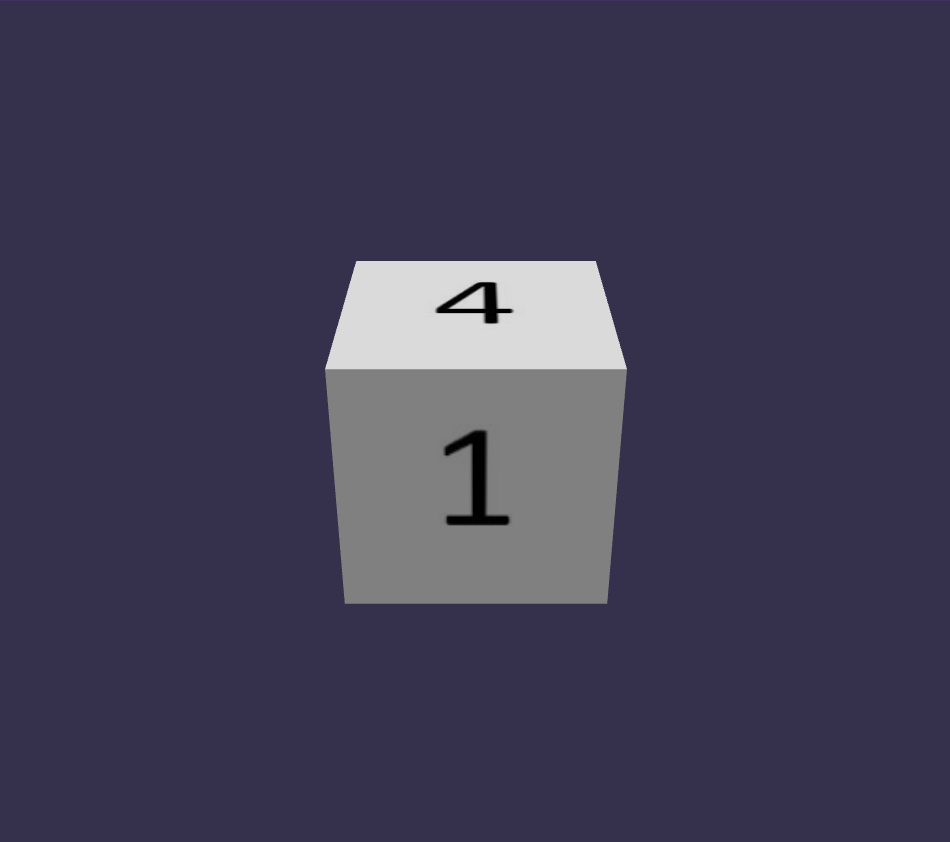Random Babylon Dice
A basic way of generating random dices on Babylon.js on the playground is given.
Contents
Introduction
If you go to this playground you will find similar code like the following:
const createScene = () => {
// Set up the scene
const scene = new BABYLON.Scene(engine);
const camera = new BABYLON.ArcRotateCamera(
'Camera',
-Math.PI / 2,
Math.PI / 3,
4,
BABYLON.Vector3.Zero()
);
const light = new BABYLON.HemisphericLight(
'light',
new BABYLON.Vector3(1, 1, 0)
);
const mat = new BABYLON.StandardMaterial('mat');
const texture = new BABYLON.Texture(
'https://assets.babylonjs.com/environments/numbers.jpg'
);
camera.attachControl(canvas, true);
mat.diffuseTexture = texture;
// Generate the dice
const columns = 6;
const rows = 1;
const faceUV = new Array(6);
for (let i = 0; i < 6; i++) {
faceUV[i] = new BABYLON.Vector4(
i / columns,
0,
(i + 1) / columns,
1 / rows
);
}
const options = {
faceUV: faceUV,
wrap: true
};
const box = BABYLON.MeshBuilder.CreateBox('box', options);
box.material = mat;
// Scene is done
return scene;
};
This yields a scene that looks like this:

The dice is exactly the same each time you run the code.
The little challenge is to generate a random dice when creating it.
Analysis of the Problem
First, there’s the code to set up the scene which is finished in the end by adding the implementation of the cube or dice. That’s the scene that is rendered on the screen.
Then there’s the other section to generate the dice. Notice that, the sprite sheet with the numbers from 1 to 6 used to take each side of the cube is given on the texture member. Next, in the for loop we select a sprite from the texture to set it as a side of the dice. Thus, the only thing we’ll do is to make that selection arbitrary. Moreover, we need to make sure to select a unique random face each time until we finish all the dice sides.
Solution
Just add the following code to update your scene:
const generatedNumbers = [];
const getUniqueNumber = () => {
const number = Math.floor((Math.random() * 6) + 1);
if (!generatedNumbers.includes(number)) {
generatedNumbers.push(number);
return number;
}
else if (generatedNumbers.length < 6) {
return getUniqueNumber();
}
}
for (let i = 0; i < 6; i++) {
const j = getUniqueNumber();
faceUV[i] = new BABYLON.Vector4(j / columns, 0, (j + 1) / columns, 1 / rows);
}
It consists of a simple ad-hoc implementation to generate random numbers from 1 to 6 inclusive.
The numbers that are being generated are stored in the generatedNumbers
array (which could be a Set for better performance). Then the function
getUniqueNumber generates a random number in the required closed-interval that
shall be unique.
Notice the use of recursion by this function, it might be an imperative loop as well for solving memory issues.
This problem can be solved with several variants, and it’s up to you, but for this basic problem any of these is valid.
When you run the code several times, a new randomly-arranged dice is obtained:

Conclusion
Code was added to the default given Babylon.js playground example to generate random dices instead of just generating the same dice every time.